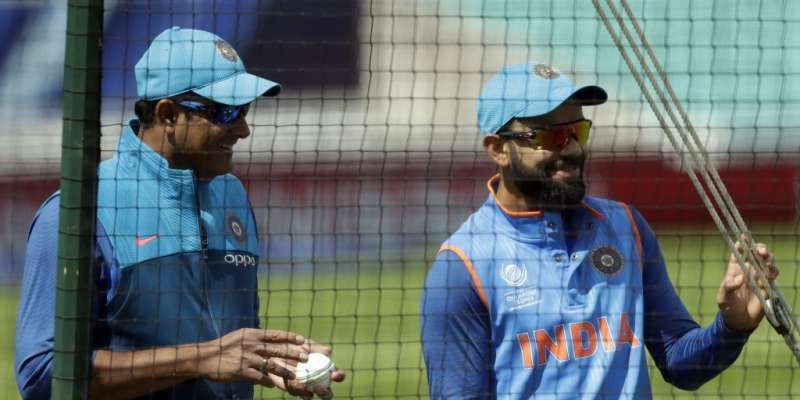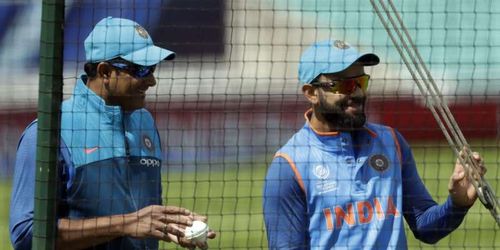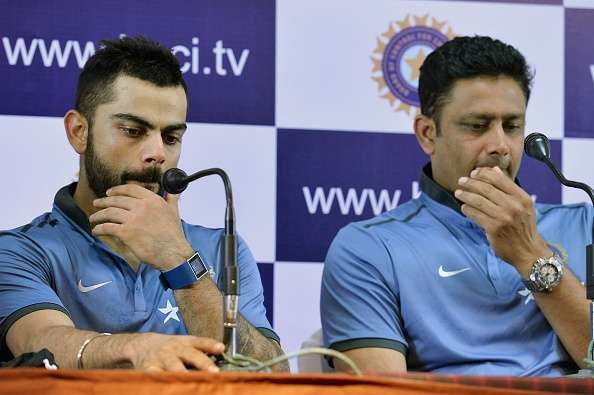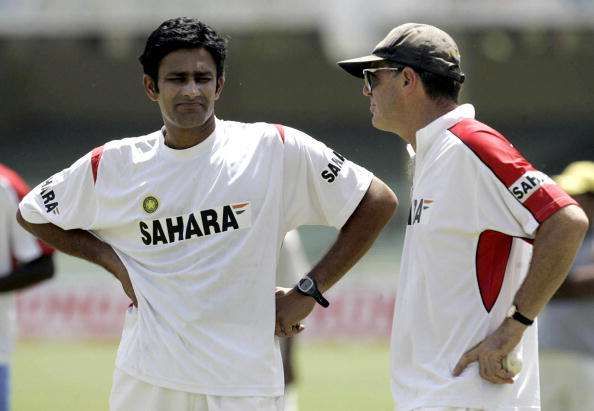
Head coach: A sounding board for innovation

The parting of two acclaimed personalities has triggered endless waves of responses from all quarters. Notwithstanding the success achieved, that they have parted ways has necessitated the need to have a microscopic view on what makes a coach tick and glow.
The partnership established between the coach and the captain of a cricket team makes for an interesting study of personalities. Although hemmed in by a common vision to improve and develop the side with clear short term goals and long term objectives, the key is to foster healthy difference of opinions.
It also puts into perspective that not all great players are accepted and cherished in their new avatars as coaches like the less celebrated cricketers who have morphed into successful coaches.
Players like the late Bob Woolmer, David Watmore, John Buchanan, Tom Moody, Trevor Bayliss, Micky Arthur, Paddy Upton and a few others never set the international cricket scene on fire as a player (some, by the way, didn't even play at the highest level). Yet, they proved the age old dictum that "he who can, does; he who cannot, teaches".
Contrast that to iconic names like Kapil Dev and Greg Chappell, who despite lofty enviable records, could not quite replicate their on-field success as a coach. For, in their own ways, they suffered from their own methods, which was not in sync with the troops they coached.
Take the case of Anil Kumble. His Himalayan achievements as a bowler aside, through sheer hard work, he earned immense respect for his fanatical work ethic as a player. His unflinching drive to improve oneself is next to none and he will remain an inspirational saga of self-belief.
Despite such pristine abilities and euphoric attributes, his resignation inside a year creates poses some serious searching questions, not so much on the episode of his abdication, but the necessary amalgam of factors needed to persevere and shine as a performing coach for a greater length of time.
Also read: Sourav Ganguly backs Virat Kohli in rift with Anil Kumble
Contrasting roles but pivotal deliverables

In other fast paced frenetic sports like football, the coach or the manager's role is one of dynamism as the captain plays very little part in tactical strategies and changes to combat the opponent. And one wouldn't blame him given that he's in the thick of it - immersed in a bubble as it were. The coach, meanwhile, with an outsider's perspective, is able to step in and suss as to what the team wants and effects the changes while calling the shots. Therein lies the beauty of a football manager.
Contrastingly, the roles are reversed in the less frenetic world of cricket. The captain needs to be switched on and although an alert coach may spot and convey an issue from the sidelines, the buck stops with the captain, as he gets both the accolades and the brickbats for steering the ship in troubled waters.
A coach that allows its wards the space to think and improve by creating a pleasant and playful climate to learn whilst having fun, enables the players to reflect, to glean information about different conditions and to allay their anxiety by reassuring them of their inherent skill sets. Such rare breeds are a virtual godsend.
To enjoy the confidence of the lads is a huge plus for a coach and it has to be earned. Inhibited and shy, some less endowed players generally don't quite come out frank with what ails them and it is an alert coach who spots such lot by being ahead of the situation. Their valuable feedback makes the two-way street function smoothly. It helps the players to confide to a coach about their shortcomings and the coach can charter a course of corrective action by addressing specific issues through extended nets.
The coach can also temper and keep a lid on over-eager youngsters, straining at the leash to impress, by getting them to be adequately prepared. He can be the guy in the changing room with whom the captain can bounce his ideas off. If he sends down a million throwdowns, it would only be an added bonus as getting the wards to bleed more in earnest purposeful training is another attribute to go agog.
Enhanced levels of communication is a huge prerequisite to a creditable coach as he can analyse and break complex issues into simple stuff. By giving a detached, outsider's perspective, a coach can literally hold a mirror to the boys. No coach must set their stalls to prove anything to anyone as their steadfast aim must inculcate a keen sense of learning and improvement.
They must do their jobs without a sense of drudgery percolating through and it is here that a hands-on coach gets the team to embark on a learning expedition without losing the sense of fun that sport amply provides.
On the contrary, a high-handed coach that craves and hogs the limelight upon a win and who deserts it at other times is an anathema to the setup and may well be reckoned as a fairweather friend. Another ill-advised and abhorrent attitude of a failed coach is to be headmasterly and with a propensity to tar or attend to everyone with the same brush.
He must realise and understand that not all players are cut from the same fabric and that there is no single tailor-made solution that fits one and all. He must also possess a clear eye to know and realise that individuals are different and thus cater to them accordingly.
Also read: 5 reasons why Ravi Shastri shouldn’t be the next India coach
The Wright way

In my experience, I have noticed John Wright's calm wisdom in being switched on to help the captain with his decisions. His inspired move to promote VVS Laxman in the second innings of the fabled Test at Kolkata in early 2001 is part of cricket's folklore. Wright, with his calm demeanour and taciturn ways, was a perfect foil to the combative and the ever "in your face" Saurav Ganguly.
Yet another instance of Wright's commendable abilities was to spot the rousing talent of Virender Sehwag and to promote him to open. Another mutually symbiotic relationship that ensued was between the calm MS Dhoni and even calmer and quieter Gary Kirsten.
The Indian team travelling to the West Indies without a head coach could well be a reflection of the changing times we live. Accomplished youths with brilliant skill sets reckoning that they need a manager (and not a coach) to stage-manage without too much of technical nous could well be the future. But to reckon that a team does not need a coach is beyond me.
Even seasoned champions like Rafael Nadal and Roger Federer seek a coach to lend them an outsider's perspective in their relentless pursuit of excellence. After all, a coach is not merely an escort that is provided for the players from the hotel to the ground.
Also read: Virender Sehwag will be asked to keep his mouth shut if appointed coach